
Opportunities for enhanced STI cooperation between the EU & Africa, 18 October 2020
Agenda 18 October 2020
09h30 Introduction and welcome
Declan Kirrane AERAP Coordinator
09h35 Perspectives Africa-EU science and innovation cooperation
Maria Cristina Russo Director for International Cooperation in Research and Innovation, European Commission, Belgium
Mahama Ouedraogo Director of Human Resources, Science and Technology Department, African Union Commission, Addis Ababa, Ethiopia
Daan du Toit Deputy Director-General: International Cooperation and Resources, Department of Science and Technology, South Africa
Carlos Zorrinho MEP, Chair, Delegation to the Africa, Caribbean and Pacific (ACP) EU Joint Parliamentary Assembly, European Parliament, Brussels
10h15 Keynote Speech: EU Africa Strategy
Lora Borissova International Partnerships, Cabinet Commissioner Urpilainen, European Commission, Brussels
10h35 High-Level Policy Dialogue
Nienke Buisman DG Research and Innovation (RTD), European Commission, Belgium
10h40 Key Area 1: Public Health
Marcel Tanner High Representative for Europe, European & Developing Countries Clinical Trials Partnership (EDCTP), Netherlands/South Africa
Jan Marco Müller Science and Technology Advisor European External Action Service (EEAS), Belgium
David McNair Executive Director, Global Policy, ONE.ORG
Kurt Zatloukal Austria Node, Biobanking and Biomolecular Resources Research Infrastructure, Austria
Rainer Fischer Perdue University and Aachen University, USA and Germany
11h40 Key Area 2: Green Transition (food, climate change and energy)
Leonard Mizzi DG Development Cooperation, European Commission, Belgium
Constance Kann Director, Institutional Relations and Public Affairs. European Investment Bank, Brussels
Murray Hitzman Science Foundation Ireland Research Centre for Applied Geosciences iCRAG, University College Dublin, Ireland
Marta Iglesias Nutrition, Security and Sustainable Agriculture (FNSSA), DG Agriculture, European Commission, Belgium
Ronald de Bruin European Cooperation in Science and Technology (COST), Belgium
12h40 Portuguese Council Presidency Priorities
Maria João Pinto Counsellor at the Cabinet of the Minister of Science, Technology and High Education, Portugal
13h00 Break
14h00 Key Area 3: Innovation and Technology
Liliana Pasecini Inter-institutional, International Relations and Outreach, DG Joint Research Centre, European Commission, Belgium
Jamal Mimouni President, African Astronomical Society (AfAS), Algeria
Mark Edge Director of Collaborations for Developing Countries, Bayer
Bonita da Swardt Programme Manager: Strategic Partnerships for Human Capital Development, South African Radio Astronomy Observatory (SARAO)
14h45 Strategic Forum on International Cooperation on Science and Technology (SFIC)
Martina Hartl Department International Research Cooperation and Science Diplomacy, Federal Ministry for Education, Science and Research, Austria
15h05 Key Area 4: Capacities for Science
Astrid-Christina Koch Copernicus and Galileo, DG Defence Industry and Space (DEFIS), European Commission, Belgium
Pieter De Smet Galileo/EGNOS DG Defence Industry and Space (DEFIS), European Commission, Belgium
Juan Miguel González-Aranda LifeWatch ERIC, EU-AFRICA Green Deal Collaboration on Biodiversity & Climate Change, Spain
Chiara Ferrari The Square Kilometre Array Telescope (SKA), France
Fiorella Perotto DG Education, Youth, Sport and Culture (EAC), European Commission, Belgium
Yousef Torman Integrating Arab e-infrastructure in a Global Environment,(e-AGE), Jordan
16h00 Data and Regulation for STI
Martha Phiri Director for Human Capital Youth and Skills Development, African Development Bank, Cote d’lvoire
Denis Dembois DG Internal Market, Industry, Entrepreneurship and SMEs (GROW), Belgium
Arnaud Senn DG Communications Networks, Content and Technology, European Commission, Brussels
Mei Lin Fung Convenor, Digital Cooperation and Diplomacy Network
16h40 Discussion
17h00 Conclusion
Speakers
-
Astrid- Christina KochSenior Expert in the DG Defence Industry and Space (DEFIS) of the European Commission
Astrid-Christina Koch is Senior Expert in the DG Defence Industry and Space (DEFIS) of the European Commission. She works on the international dimension of the EU Space Programme together with European and International partners. She is the point of contact for the Committee on Earth Observation Satellites (CEOS) and the Group on Earth Observations (GEO) in DG DEFIS and is supporting cooperation on Copernicus worldwide. From 2007 – 2012 she served as science diplomat in the EU Delegation to the United States in Washington DC promoting transatlantic science and space cooperation.
Astrid received a Ph.D. in Natural Science from the Christian – Albrechts University in Kiel/Germany. -
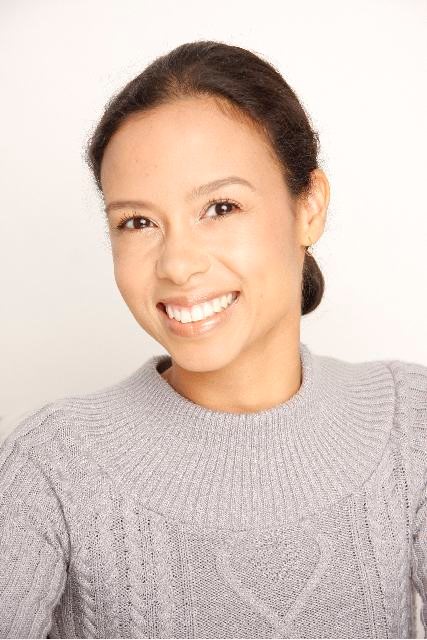 Bonita de SwardtManager of Strategic Partnerships for Human Capital Development (South African Radio Astronomy Observatory)
Bonita de SwardtManager of Strategic Partnerships for Human Capital Development (South African Radio Astronomy Observatory)Dr Bonita de Swardt carried out her initial training in astronomy at Rutgers University in the US. She completed her PhD in 2009 working on science commissioning data of nearby dwarf galaxies observed with the 11m Southern African Large Telescope (SALT) in Sutherland, South Africa. After completion of her PhD, she continued her research of studying the properties of nearby dwarf systems using SALT and various infrared observing facilities, which formed part of her postdoctoral fellowship at the South African Astronomical Observatory (SAAO).
Bonita has always been passionate about developing human capacity in astronomy in South Africa. Her interest in human capacity development in astronomy was sparked while taking up a part-time role of coordinator for the National Astrophysics and Space Science Programme (NASSP) during her postdoc. Following her postdoc, she was employed by the Department of Science & Technology (DST) under the Astronomy Desk in 2012. At the time, the Astronomy Desk was tasked with providing strategic advice and input to the Minister of Science & Technology, Ms Naledi Pandor, to inform astronomy governance and policy decisions within the South African context.
Bonita joined the SKA South Africa – now known as the South African Radio Astronomy Observatory (SARAO) – under its Human Capacity Development (HCD) division in 2014. She has developed and oversees a number of new strategic capacity development interventions that have been formally introduced into SARAO. This includes the SARAO graduate internship programme for science and engineering teams, running of workshops and schools in critical skills areas within radio astronomy and related areas, international student exchanges, managing international partnerships in developing the necessary skills and capacity in radio astronomy in the SKA Africa partner countries, amongst other areas.
-
 Chiara FerrariAstronomer at Observatoire de la Côte d’Azur, Director of Maison SKA-France and Chair of the European SKA Forum
Chiara FerrariAstronomer at Observatoire de la Côte d’Azur, Director of Maison SKA-France and Chair of the European SKA ForumAstronomer at Observatoire de la Côte d’Azur (Nice, France), Chiara Ferrari’s research focuses on radio observations of the most massive gravitationally bound structures in the Universe – galaxy clusters – in order to study them as the largest “particle accelerators” in nature. Very interested in the development of low-frequency radio astronomy in France, she plays a structuring role within the national community, with a particular focus in the development of the Square Kilometre Array. Today, after her appointment in 2018 as Director of « Maison SKA-France », she has an intense activity with the academic and industrial world aiming at structuring the French contribution to the SKA at the scientific and technological level to make the case for France to become a member of the SKA Observatory. Since 2018, when the French National Centre for Scientific Research (CNRS) joined the SKA Organisation as a special member, she is the French scientific representative in the SKA Board of Directors. In 2020, Chiara Ferrari has been elected Chair of the European SKA Forum, a platform to promote joint European SKA-related initiatives in view of the beginning of the SKA Observatory construction.
-
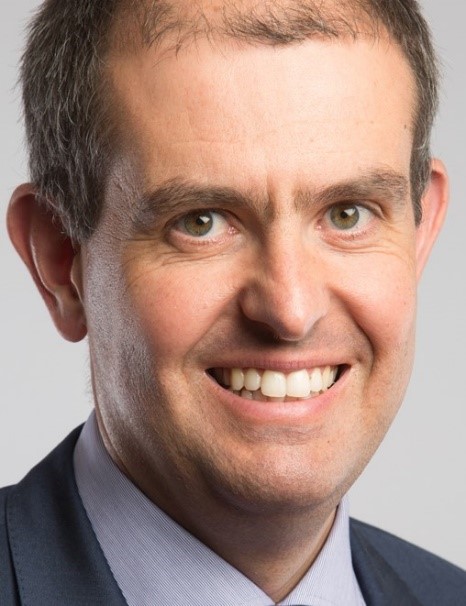 Daan du ToitDeputy Director-General: International Cooperation and Resources
Daan du ToitDeputy Director-General: International Cooperation and ResourcesDaan du Toit started his career in the South African Government with the then Department of Foreign Affairs where he trained as a diplomat. Since 2002 he has been attached to the Department of Science and Innovation, where he has notably served as the Department’s representative in Europe, based in Brussels. In 2014 he was appointed as Deputy Director-General responsible for the portfolio International Cooperation and Resources.
Over the years Daan had the privilege to contribute to multiple initiatives in support of a diverse and rich international partnership portfolio for South African science, technology and innovation. He for example played a central role in the establishment and management of the European-South African Science and Technology Advancement Programme (ESASTAP.)
Daan has represented South Africa in diverse multilateral forums such as the OECD’s Global Science Forum, the Group on Earth Observations and the BRICS partnership, as well as in various structures related to African regional and continental cooperation of the African Union and the South African Development Community.
In addition to being a member of the Department of Science and Innovation’s Executive, Daan currently chairs the Strategy and Business Development Committee of the Square Kilometer Array (SKA) global radio telescope project.
-
 Declan KirraneDirector ISC Intelligence in Science and Coordinator EU Africa Radio Astronomy Platform
Declan KirraneDirector ISC Intelligence in Science and Coordinator EU Africa Radio Astronomy PlatformDeclan Kirrane is Managing Director of ISC Intelligence in Science, a specialized science, technology and R&D public affairs firm based in Brussels, Belgium. ISC develops and implements Strategic Research Agendas for science and technology-based organisations in the EU and US.
His practice areas cover IP, R&D consortia development, management and dissemination and is responsible for themes of ICT, health, security, defence, space and related policies, legislation, programmes and funding mechanisms. Declan Kirrane has a background in analysing the relationship between public and private R&D funding and the impact on R&D performance: he has worked extensively on science and technology policy evaluation methodologies and technology options for policy- and decision-makers. The EU’s Digital Agenda, emerging European space, security and defence policies are part of his remit. -
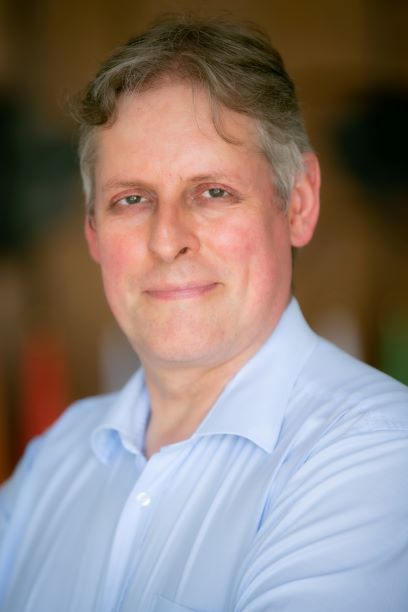 Jan Marco MÜLLERScience and Technology Advisor European External Action Service (EEAS), EC
Jan Marco MÜLLERScience and Technology Advisor European External Action Service (EEAS), ECFollowing his PhD in Geography from the University of Marburg (Germany) in the year 2000, Jan Marco Müller’s career included research management positions at the Helmholtz Centre for Environmental Research (UFZ) in Leipzig (Germany), the former JRC Institute for Environment and Sustainability in Ispra (Italy), and the UK Centre for Ecology & Hydrology (CEH) in Wallingford (UK). During these years he also served as first Secretary of the Partnership for European Environmental Research (PEER), the network of Europe’s largest environmental research centres. Since 2009 he has worked in important positions at the interface of science, policy and diplomacy. After having served as Assistant to the Director-General of the European Commission’s Joint Research Centre in Brussels (2009-2012), he managed the office of the Chief Scientific Adviser to the President of the European Commission (2012-2015). Following a sabbatical at the University of Colorado at Boulder (USA) in 2015, he then joined DG Research and Innovation to help setting up the European Commission’s current Scientific Advice Mechanism. 2017-2020 he worked for the International Institute for Applied Systems Analysis (IIASA) near Vienna (Austria), first as Head of the Directorate Office and Coordinator for Science Diplomacy and later as Acting Chief Operations Officer. Since August 2020 he serves as Science & Technology Advisor in the Secretariat-General of the European External Action Service (EEAS).
-
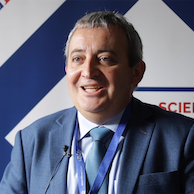 Juan Miguel González-ArandaLifeWatch ERIC CTO & ERIC FORUM Executive Board Member
Juan Miguel González-ArandaLifeWatch ERIC CTO & ERIC FORUM Executive Board MemberPhD. Engineer on Telecommunications, and Industrial Organization-Enterprise Management European Master. LifeWatch ERIC CTO & Spain Director. ERIC FORUM Executive Board Member (ENVRI cluster), former Chair. July 2012-June 2018: HoU Nanomaterials & e-Science Spain Science & Innovation Ministry public officer. Ministry Delegate for: GBIF” (www.gbif.org); European Commission: eIRG (www.eirg.eu); ESFRI (www.esfri.eu) & Open Science (Group European Data Experts GEDEResearch Data Alliance RDA www.rdalliance.org); EOSC (www.eoscportal.eu) & EuroHPC (“Sherpa”, https://eurohpcju.europa.eu) establishment; support Environmental ESFRI (www.esfri.eu) & related initiatives. European Structural and Investment Funds-RIS3 expert for ICT & ENV Research Infrastructures according to EU regions RIS3 & FP policies. EIT Climate Change KIC startup activities. November 2004-June 2012: Spanish Council for Scientific Research-CSIC: Technical Director at Doñana Natural Area Singular S&T Research Infrastructure; Contract Agent-Research Technologist EuroMediterranean & LAC projects. January 1998-October 2004: Researcher at University of Seville (biomechanics, digital image processing). Independent Consultant-ICT freelance Public & Private sector.
-
 Kurt ZatloukalHead of EU Bio Bank
Kurt ZatloukalHead of EU Bio BankKurt Zatloukal, M.D., is Professor of Pathology and head of the Diagnostics and Research Center for Molecular Biomedicine at the Medical University Graz. His research work focuses on the molecular pathology of metabolic liver diseases and cancer as well as molecular diagnostics. He is working on the development of biobanking-related technologies and machine learning approaches for digital pathology. He coordinated the preparatory phase of the European biobanking and biomolecular research infrastructure (BBMRI) and is now director of its Austrian national node. In this context solutions have been developed for providing access to quality controlled human biological samples and medical data for research and innovation.
-
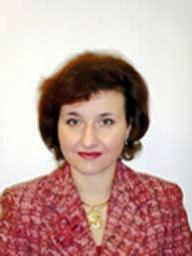 Liliana PasecinicDeputy Head of Unit ‘Interinstitutional, International Relations and Outreach’ at the European Commission’s Joint Research Centre (JRC)
Liliana PasecinicDeputy Head of Unit ‘Interinstitutional, International Relations and Outreach’ at the European Commission’s Joint Research Centre (JRC)Dr. Liliana Pasecinic, is Deputy Head of Unit ‘Interinstitutional, International Relations and Outreach’ at the European Commission’s Joint Research Centre (JRC). She coordinates the JRC’s cooperation with international partners at national, regional and multilateral level. PhD in Economics, she has over twenty years of diplomatic experience.
-
 Maria Cristina RussoDirector for International Cooperation in DG Research and Innovation, European Commission
Maria Cristina RussoDirector for International Cooperation in DG Research and Innovation, European CommissionMaria Cristina Russo is Director for International Cooperation in DG Research and Innovation with responsibility for developing and implementing the EU international strategy for international cooperation in research and innovation and the international dimension of the Horizon programme. She has been working for the European Commission since 1992 where she held several policy and managerial positions related to external relations, the EU decision-making process and various EU policies, in particular research & innovation. She was part of the team dealing with technical assistance to former Soviet Union, then member of the Cabinet of the Commissioner in charge of research policy when the European Research Area was launched. She was later appointed Head of Unit in the Secretariat-General of the European Commission holding different positions dealing with inter-institutional relations and policy making, and in the department in charge of consumers’ policies and financial services, before being appointed to her current position in 2013. Maria Cristina holds a degree in Political Sciences from the Luiss University of Rome and a Research Master Degree in European Studies from the College of Europe in Bruges. She has three children.
-
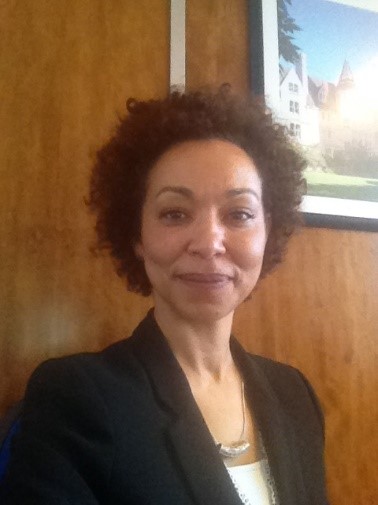 Maria João PintoCounsellor at the Cabinet of the Minister of Science, Technology and High Education, Portugal
Maria João PintoCounsellor at the Cabinet of the Minister of Science, Technology and High Education, PortugalMaria João Pinto has received her undergraduate degree in International Relations from Universidade Lusíada, a master’s degree in social and Economic Development in Africa and a PHD in African Studies, from ISCTE, University Institute of Lisbon.
She is an Adviser for International relations at the Office of the Minister of Science, Technology and Higher Education since December 2019. Maria João was working as a Science Officer at the Foundation for Science and Technology, working for the Department for International Relations (2010-2016). She has more than 20 years of experience in international project coordination and management in the areas of cooperation, culture, education, science and technology, having worked as a consultant for the Mediterranean, Europe and Africa as well as Global Education and Youth programmes in the North-South Centre of the Council of Europe (2007- 2008). She was a consultant at Instituto Camões (Ministry of Foreign Affairs) for Africa, Middle East, Asia and Australia (1999 to 2005).
She developed her research in Mozambique since 1999, where she worked on the issues of religion and power in Mozambique, with special focus on the growing influence of Islam and Islamic authorities in Mozambique. She did research on Islamic education in Mozambique, having participated in R&D projects on Education and Training in Angola, Guinea-Bissau, Mozambique and São Tome e Príncipe. Most recently she has worked on issues of traditional power and the relationship between traditional authorities and State in Africa. -
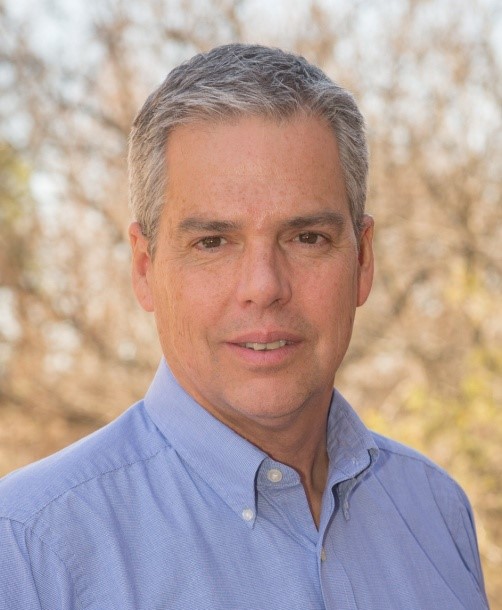 Mark EdgeDirector, Seeds & Traits Business Development for LMICs
Mark EdgeDirector, Seeds & Traits Business Development for LMICsDirector, Seeds & Traits Business Development for LMICs
Mark leads Bayer’s collaborations with public-private partnership projects to get innovative improved seeds and traits to smallholder farmers to improve food security and rural livelihoods in low- and middle-income countries in Asia, Africa and Latin America. The WEMA (Water Efficient Maize for Africa) project is one of the signature projects he leads to develop new drought-tolerant and insect pest-protected maize hybrids and provide the technology royalty-free. It helps build technical capacity in Africa to use conventional and molecular breeding as well as biotechnology, and helps improve seed systems to deliver better quality seed to smallholder farmers.
Mark has held multiple roles at the company leading the introduction of new innovative seeds and traits varieties from Bayer’s R&D pipeline. He has previously held roles as the Europe & Africa Marketing Lead; the Global Cotton Product Manager and the Director of Trait Marketing at Corn States. His background includes experience in biotech research; many aspects of managing seed business development as well as the grain export business. He has a B.S. from Iowa State University, a M.S. in Genetics from the University of California at Davis, and an MBA from Drake University.
-
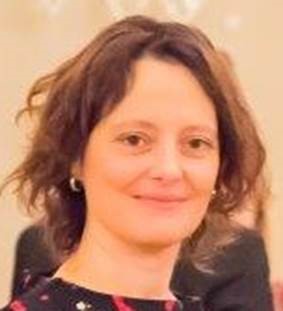 Martina HartlDeputy Head of Unit for International Research Cooperation in the Ministry of Education, Science and Research in Austria
Martina HartlDeputy Head of Unit for International Research Cooperation in the Ministry of Education, Science and Research in AustriaMartina Hartl is Deputy Head of Unit for International Research Cooperation in the Ministry of Education, Science and Research in Austria. With a background in Sociology her 20+ years career in the Ministry started in the Department of Social Sciences and Humanities, where she has soon been involved in EU activities, serving as the Austrian delegate in the respective Programme Committees in FP6 and FP7. From 2009 to 2014 she worked in DG RTD in Brussels as Seconded National Expert in the fields of Social Sciences and Humanities as well as “Sharing excellence and widening participation“. After returning to Vienna in 2013, she joined the Unit for International Research Cooperation focusing on bilateral and multilateral collaboration outside the EU as well as regional initiatives with neighbouring countries (e.g. EUSDR, EUSALP and Western Balkans). In 2018 she was part of the Austrian EU-Presidency Team and CO-Chair of the Councils Research Working Party, responsible for negotiating the agreement of the Member States for Horizon Europe.
-
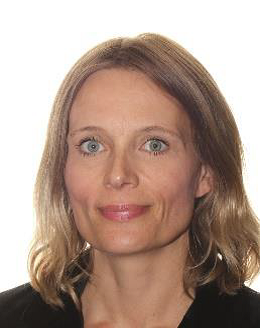 Nienke BuismanHead of Unit International Cooperation in the European Commission, Directorate-General Research & Innovation
Nienke BuismanHead of Unit International Cooperation in the European Commission, Directorate-General Research & InnovationNienke Buisman is working as Head of Unit International Cooperation in the European Commission, Directorate-General Research & Innovation since 2019. She is in charge of developing and implementing the EU’s research and innovation cooperation policy with Africa, Asia and the Middle East.
Previous jobs held in DG Research & Innovation: Deputy Head of Unit in charge of establishing public-private partnerships in research and innovation and preparing the delegation of program implementation to Executive Agencies and other Funding Bodies; Policy Advisor to the Deputy Director-General in charge of financial and human resources management and the energy and climate change research portfolios; Senior policy-officer in the international cooperation department, in charge of the collaboration between the EU and South Africa and the African Union; and leading a team on knowledge management in the Resources Directorate.
Nienke started her career in the European Commission in 2002, in DG Transport and Energy as the assistant to the Resources Director. Before joining the European Commission, Nienke has worked for UNICEF and the Assembly of French Chambers of Commerce in Brussels. Nienke holds a MSc in Development Studies from the London School of Economics and Political Science (LSE). She also holds a double French-British MA in European Public Policy. She has three children. -
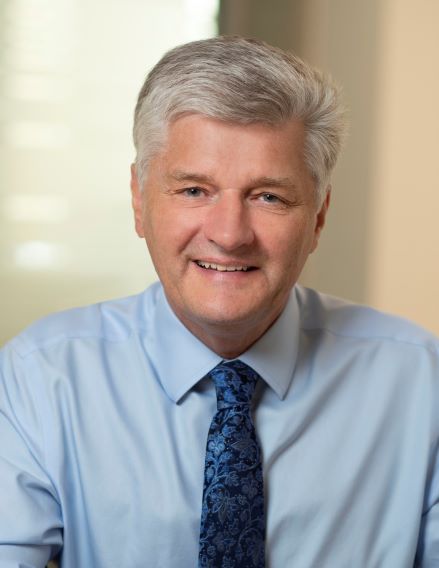 Rainer FischerPresidential Fellow and Research Professor at Purdue University.
Rainer FischerPresidential Fellow and Research Professor at Purdue University.Prof. Dr. Rainer Fischer is a Presidential Fellow and Research Professor at Purdue University. He is an internationally recognized scientist with expertise spanning the fields of pharmaceutical, agriculturaland industrial biotechnology, including omics technology, protein engineering, molecular medicine, immunology, virology, drug discovery, and the GMP manufacturing of recombinant protein biologicals for clinical trials. He was formerly CEO and CSIO of the Indiana Biosciences Research Institute (2017–2020), Senior Executive Director of the Fraunhofer IME, Germany (2001–2017) and Department Head of the Institute for Molecular Biotechnology at RWTH Aachen University, Germany (2000–2017).
Prof. Dr. Fischer established and built the Fraunhofer IME in Aachen and expanded the institute to six locations in Germany as well as two subsidiaries – Fraunhofer USA Center for Molecular Biotechnology (CMB) and Fraunhofer Chile Research (FCR) – together employing more than 700 personnel. At the same time, he expanded his RWTH University department to 70 personnel and formed links with Maastricht University to launch the Aachen-Maastricht Institute of Biobased Materials (AMIBM). Based on these achievements, he was awarded the title of Distinguished Professor by RWTH Aachen University in 2015 and Full Professor by Maastricht University in 2017. He became a Presidential Fellow at Purdue University in 2018.
During his extensive career, Prof. Dr. Fischer has raised more than €800 million in European research funds and more than $200 million internationally. He has given more than 400 scientific presentations around the world, and has published more than 460 peer-reviewed scientific publications (h-index = 82) which have been cited over 25,000 times. He has 96 pending patent applications and 50 granted patents. He has graduated 137 PhD students. He has helped to establish eight start-up companies, assisted in bringing five products to the market, and has served on multiple national and international advisory boards. -
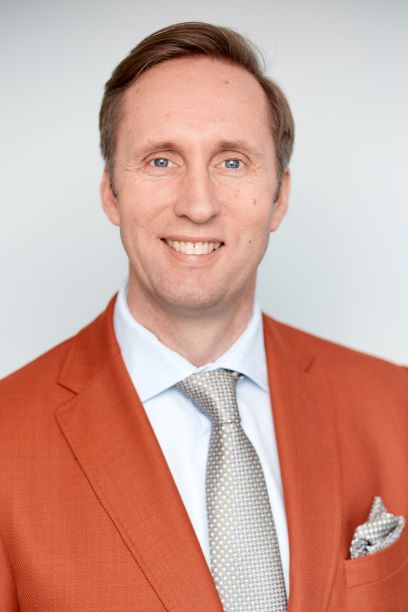 Ronald de BruinDirector of the COST Association
Ronald de BruinDirector of the COST AssociationDr Ronald de Bruin was appointed Director of the COST Association on 1 June 2016. Before joining the Association, Ronald was Director of the European Institute of Innovation and Technology (EIT) and Head of Department of the European Network and Information Security Agency (ENISA). For almost eight years, he played a key role in and managing and setting up these European Union agencies from scratch.
Prior to this, he was Deputy Director of a public-private partnership platform for the Information Society in the Netherlands for over three years. His main responsibilities included drafting the annual work programs including public-private partnership projects, managing the implementation of national multi-stakeholder projects, and coordinating EU-funded projects.
For almost three years, he worked for a global COM company with top-100 clients. During his one-year stay as manager at KPMG, he worked on developing e-security services for the growing e-commerce market. He started his career as Policy Advisor for the Dutch national government, where, for three years, he was responsible for developing a national policy on e-security services, and scenarios for introducing digital TV.
He is Ambassador to Brussels for the Greenleaf Center for Servant Leadership Europe and Founding Director of the Greenleaf Center in Brussels.
Dr De Bruin has also authored several books on servant-leadership, digital television, online consumer trust and computer security. He holds a Ph.D.in Law and Computer Science, an M.Sc. in Technology Management and a B.Sc. in Electronic Engineering. -
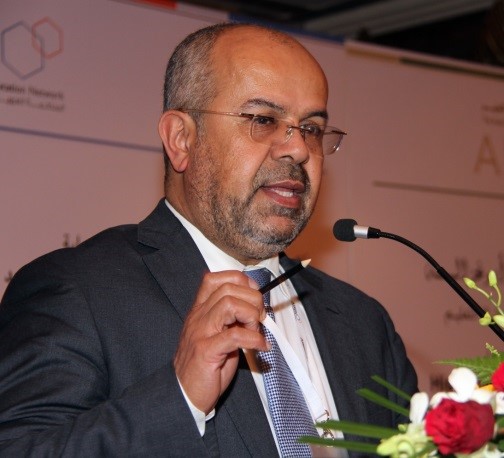 Yousef TormanManaging Director, Arab States Research and Education Network - ASREN
Yousef TormanManaging Director, Arab States Research and Education Network - ASRENFor the last thirty years, Yousef Torman has been working in ICT at highly reputable institutions in the higher education and scientific research sector. During his work, his main focus was to make use of technology, mainly ICT, for the developments and enhancing the life of people in his community and beyond.
In 1989, he started his work as Engineer at the Computer Center of Jordan University for Science and Technology, and then he had successfully established and managed the New Computer and Information Center at Jordan University of Science and Technology in 1999 (serving around 16000 students, 3500 faculty and staff members), then, in 2005, and at the national level, he established and managed the Jordanian National Research and Education Network (serving 11 Universities with more than 250000 students and 25000 faculty and staff members). After that, in 2012, and at the regional, he played a prominent and key role in the efforts and initiatives that aim to establish a Pan Arab regional e-Infrastructure for education scientific research for more than 5 years. These efforts were concluded by the establishment of the Arab States Research and Education Network – ASREN – for which he’s currently the Managing Director (hoping to serve hundreds of Universities in the Arab Region).
